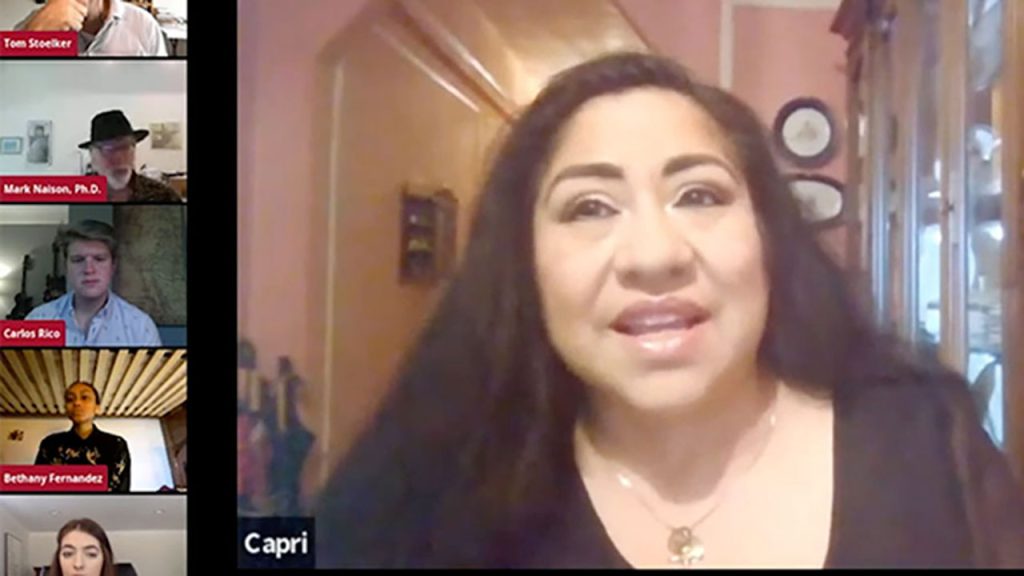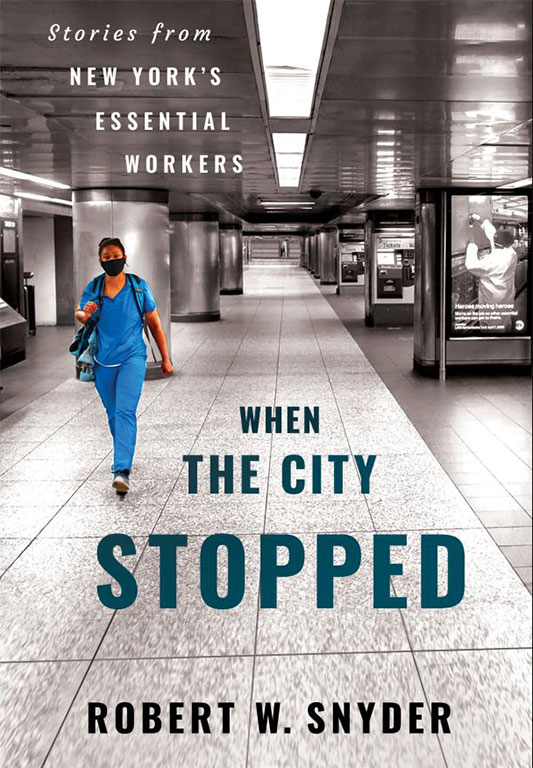A new book featuring interviews conducted by Fordham students recounts the fear and uncertainty that gripped New York City in the early days of the COVID-19 pandemic, as well as the solidarity that sustained the city.
When the City Stopped (Cornell University Press, 2025) tells the story of the pandemic through the voices of New Yorkers who were unable to flee the city or work from home.
Author Robert Snyder, Ph.D., the Manhattan borough historian, collected narratives, interviews, and poems from groups such as Queens Library’s Queens Memory Project and Fordham’s Bronx COVID-19 Oral History Project. Fordham’s interviews were conducted in 2020 by researchers affiliated with the Bronx African American History Project.
“The most compelling narratives that I put in the book, including the Fordham narratives, are about people who saved themselves, but then they went out, and they helped others,” said Snyder, who is also a professor emeritus at Rutgers University.
Focusing on essential workers, Snyder sought out stories from healthcare workers, grocery clerks, community activists, and transit workers.
Tales from a City Under Siege
Of the roughly 20 interviews conducted for the Bronx COVID-19 Oral History Project, Snyder chose four, including Maribel Gonzalez, the owner of the South of France restaurant, and Ralph Rolle, a drummer and owner of Soul Food Snacks Cafe.
Another Fordham interview subject, Patricia Hernandez, described the stress of commuting from her home in East Tremont to John Jay College of Criminal Justice and to her job as a sales clerk at a T-Mobile in Kips Bay, where employees were deemed essential workers.
“I really didn’t have a choice but to go to work and get paid,” said Hernandez, who lived with her mother and sisters and had to help pay the bills.
On the subway, she said she was “pretty much in fear the whole time.”
“You’re really in an environment where you feel like you are surrounded by COVID.”
Nichole Matos, another Bronx resident interviewed, lost her job at a Riverdale gym 24 Hour Fitness and was forced to quarantine after she was potentially exposed to COVID-19.
“You get tired of eating the same thing, watching the same things, reading the same things for class, and meeting for these virtual classes,” she said.
The Resilience of the Bronx
Veronica Quiroga, a 2020 graduate who conducted the interviews with Hernandez and Matos, was majoring in African and African American studies when the pandemic hit; she quickly shifted from conducting interviews for the Bronx African American History Project to the COVID-19 project.
She’s proud of the attention the project brought to struggling businesses. She’s also grateful to the people who shared their stories.
“Nobody knows more than the people themselves what they go through during these times,” she said.
“The fact that people are willing to get on a public platform and be so vulnerable demonstrates not only the resilience of the people of the Bronx but also the potential that lies within them.”
Highlighting Disparities
Carlos Rico, a 2021 Fordham graduate who was the lead coordinator for the oral history project, said that interviewing Bronx residents prepared him to think more deeply about the income and racial disparities that left so many Bronx residents exposed to the pandemic in ways that others were not.
It’s a skill he uses daily as an assistant district attorney in Brooklyn, a job he landed shortly after earning a law degree from Fordham Law School last year.
“I’m proud of the way that we were able to communicate with neighbors of the University and make that space so they could feel heard,” he said.


